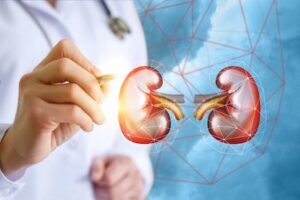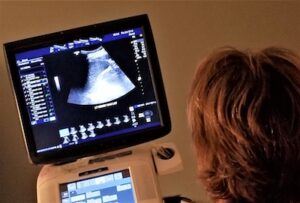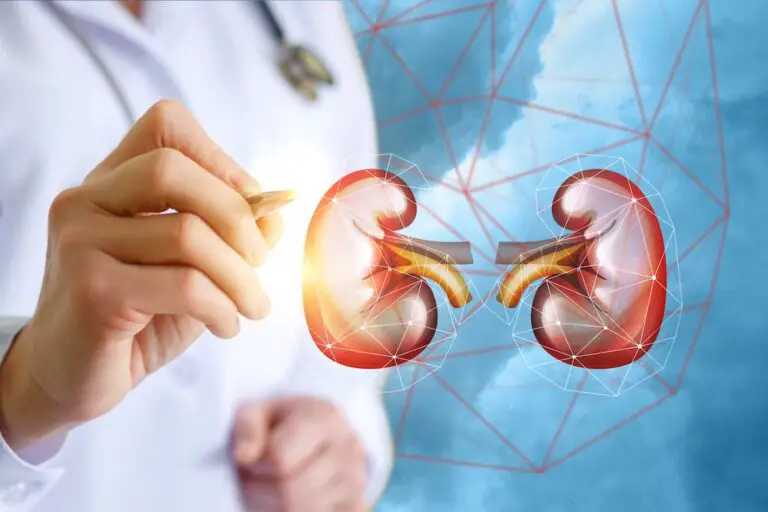Early detection of kidney disease can mean the difference between controlling the symptoms and needing a new kidney. Signs and symptoms of kidney disease can be related to many other illnesses so it can be difficult to diagnose before significant damage occurs. If you believe that you are experiencing symptoms of kidney disease, getting in to see a nephrologist is extremely important, but it can be nerve-racking.
How much does it cost to see a nephrologist? The cost of seeing a nephrologist largely depends on the kind of health insurance you have. Most basic insurance policies will cover a portion of the cost to see a specialist, so you can expect to pay anywhere from $60 out of pocket to upwards of $300.
Other questions that may come to mind would be is it difficult to get in to see one? Can you do this without seeing a nephrologist? These are all questions that will be covered in this article – so keep reading to find out more!
How Much Does it Cost to See a Nephrologist?
The cost of seeing a nephrologist largely depends on the kind of health insurance you have. Most basic insurance policies will cover a portion of the cost to see a specialist provider, such as a nephrologist; ultimately, you can expect to pay anywhere from $60 out of pocket to upwards of $300.

Just like anything in healthcare, cost varies on insurance, healthcare providers, medical tests, and location. Unfortunately, because of these variables, it can be difficult to predict how much it would cost you to see a nephrologist – and oftentimes, you won’t have a choice, your health depends on seeing the doctor. In this article, we will review why you may need to see a nephrologist, what to expect from seeing a nephrologist, and how to estimate what the cost will be to see a nephrologist.
What is a Nephrologist?
A nephrologist is also known as a kidney doctor and specializes in helping you manage your kidney health. They will do this by creating a kidney care plan based on your chronic kidney disease stage and medical history, which will:
- Help you maintain your kidney health
- Recommend medications to help slow your CKD progression
- Closely monitor your test and lab results
- Work with your other doctors to maintain your overall health
- Plan for any future kidney needs
What is Chronic Kidney Disease?
The kidney is responsible for filtering waste and excess fluids from your blood that will be removed in your urine. Chronic Kidney Disease, also known as chronic kidney failure, means that your kidneys are no longer able to filter at the same level, causing a build-up of dangerous fluids, electrolytes, and wastes in your body. CKD can be difficult to diagnose because symptoms can often be related to other illnesses, and when early detection is missed, it often isn’t noticeable until irreparable damage has occurred.
Symptoms often include:
- Loss of Appetite
- Nausea
- Vomiting
- Fatigue and Weakness
- Problems Sleeping
- Swelling Feet and Ankles
- High Blood Pressure
- Decreased Mental Sharpness
- Urinating More or Less
The treatment for CKD typically focuses on slowing the progression of kidney damage by controlling the cause. Causes of CKD can include: diabetes, high blood pressure, recurring kidney infections, inherited kidney diseases, obstruction of the urinary tract, and other conditions.
In order to control the cause of your CKD, your doctor may prescribe different medications (high blood pressure, anemia treatment, prevent swelling, lower cholesterol, protect your bones, lower protein), or if yours is more advanced, dialysis and kidney transplants will be the treatment options.

Why Is Seeing a Nephrologist Important When Living With Chronic Kidney Disease?
When dealing with chronic diseases, specialists are helpful because they know your case intimately and can more closely monitor your progress. While a general practitioner can help you understand what your disease means and can explain things to you, a nephrologist will have a better sense of what treatments may work for you and how best to help you live with it.
More than likely, your nephrologist will work with your primary physician to create a unique care plan that takes into account your medical history. And, your primary physician will be the one to recommend a nephrologist for you to see. So, what can you expect when you visit your nephrologist for the first time?
Your first visit to the nephrologist will start with basic history and testing. You’ll go over your medical background, explain your symptoms, and explain your diet and lifestyle. Once history has been covered, you will be expected to complete a few tests, including blood and urine. Once these tests are completed, your nephrologist will make their official diagnosis of CKD stage and will take the first steps to create your unique care plan for your medical needs. This means they will prescribe certain medications, advise about your diet and exercise, and plan any further testing or treatments that may be needed.
Don’t be afraid to ask questions, being diagnosed can be scary and overwhelming but your nephrologist is there to help you. Living with CKD is possible, you just have to be willing to do what they say.
How Much Should You Expect to Pay to See a Nephrologist?
We mentioned earlier that with insurance, seeing a specialist healthcare provider means you will pay a higher copay, typically between $50-$75. This amount may not take into account any medications or dialysis treatments you may have to undergo, but it is a basic number to get you started.
Without insurance, the amount is likely much higher. Depending on the healthcare provider, you will likely have to pay at least $300 to see the nephrologist. Cost can be scary, but living a full and happy life is worth it. If you’re worried about cost, do some research on insurance providers, and work with your employer and healthcare providers to see what you can do to manage the overall cost.
Healthcare providers entered their profession for a reason – they want to help people. They will work with you to figure out how to manage your health in the best way that makes sense for you. Go into your appointments with questions and make sure you have a support system to help you navigate this situation.

Related Questions
What is Dialysis?
Dialysis artificially removes waste products and extra fluid from your blood when your kidneys are no longer able to do so. You will be hooked up to a machine that filters your blood for you, much like your kidneys would do if they were healthy. Dialysis treatment frequency will vary depending on the severity of your condition – some patients need to attend daily, and others can go longer between treatments.
Can You Prevent Chronic Kidney Disease?
Full prevention of chronic kidney disease is not necessarily possible, some patients are more inclined genetically to have the condition, while others’ lifestyles may lead to it. There are still some things you can do to prevent your risk factor of developing kidney disease. Risk factors include diabetes, family history, old age, abnormal kidney structure, high blood pressure, heart disease, smoking, obesity, frequent use of medications, etc. In order to reduce your risk factors, you should:
1. Maintain a Healthy Weight and Diet
Strenuous exercise is not necessary, simply being active for 30 minutes a day and controlling your diet can do wonders for your weight. If you experience weight gain, consult with a doctor or dietician to help control your weight.
2. Limit Your Use of Over-the-Counter Medications and Follow Instructions
The use of nonprescription medications and pain relievers can lead to kidney damage, so be sure you consult the instructions on the medication and talk with your doctor about why you need to take the pain relievers.
3. Manage Your Other Health Conditions
If you already have high blood pressure, high cholesterol, heart disease, etc. it is extremely important to manage them. Whether that is through medications or other treatments that your doctor prescribes, it can significantly reduce your chances of kidney damage or disease – not to mention other health problems.
What Kind of Diet Should You Follow if You Have Kidney Disease?
If you are dealing with kidney disease, your doctor will recommend following a certain diet to help mitigate your symptoms. Such dietary recommendations will likely include:
Lower Potassium Foods
Foods such as bananas, oranges, potatoes, spinach, and tomatoes all contain high levels of potassium and can cause your kidney to work harder. Some lower potassium foods that you should try and eat are strawberries, grapes, carrots, green beans, etc.
Limit Your Protein Intake
Your doctor will be able to calculate how much protein you need each day based on your kidney disease and body needs. Some low-protein foods are vegetables, fruits, and bread. While some high-protein foods are meats, eggs, milk, and cheese.
Avoid High Salt Content
Salt contains sodium which also makes your kidneys work harder to filter out waste and unfortunately, there are many foods with high salt content. So you should work to avoid fast food, frozen foods, canned soups, snacks, and processed foods.
Conclusion
A well-rounded diet and specific medications can do wonders to improve your lifestyle when living with chronic kidney disease – but consistency and dedication are key. If you think you’ll have trouble instituting these new restrictions, find a support group online or ask someone you know to help you stay accountable or even follow the same diet. You can live with CKD and a nephrologist can help you do so.

